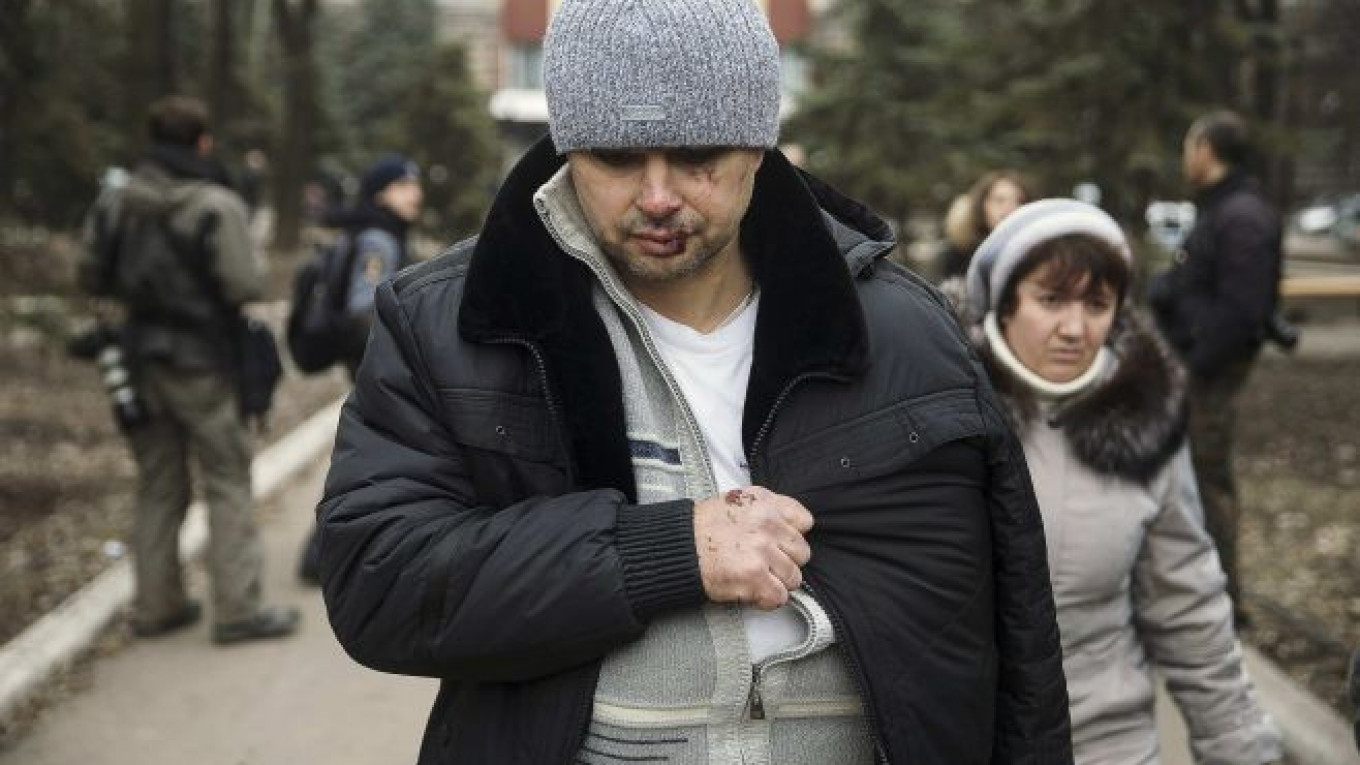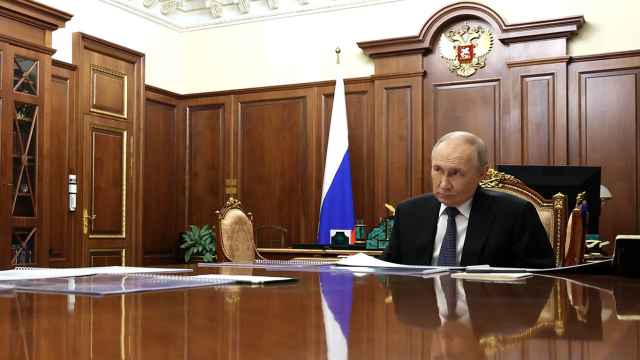Thirty-three miners were confirmed dead late on Wednesday after a coal mine blast in the rebel-held city of Donetsk near the battle front in eastern Ukraine, indicating no one trapped in the rubble survived.
Mine officials said the explosion was most likely caused by gas and not fighting in the war between Moscow-backed rebels and Ukraine government forces. Nevertheless, Kiev suggested the war had made the disaster worse, accusing the separatists of holding up a rescue effort by restricting access.
Outside the gates of the Zasyadko mine, about 30 relatives clamored for information about any survivors. Sergei Baldayev, a miner injured in the blast, mingled with the crowd, his face covered in scratches and one arm hanging motionless by his side, the result of a broken collarbone.
The Donetsk regional administration said 16 injured people were in hospital.
Earlier in the day, after the body of one miner had been retrieved, the emergence services said 32 people remained trapped in the mine. But hour after hour the death toll kept rising.
"The total deaths amount to 33 people," Interfax news agency reported, citing the region administration's press service.
Eduard Dmitrenko, a miner who went down the affected shaft after the blast, said it was unlikely any of the missing miners would be found alive. "But they will of course find bodies," said Dmitrenko, his face covered with coal dust.
Trucks and buses were driven to the mine in preparation for transporting the bodies to local morgues.
Asked what were the chances of trapped miners surviving, a medical worker said: "It's getting smaller and smaller all the time, because of the methane, the hot air, burns to the airways."
Heavy Fighting
Donetsk has been the scene of heavy fighting between Moscow-backed separatist rebels, who control the area, and forces loyal to the government in Kiev. A cease-fire has sharply reduced the violence in the past week.
The neighborhood around the mine has come under artillery fire, with fragments from Grad rockets visible on surrounding roads, but mine officials said the explosion was unrelated to the fighting and most likely caused by gas.
In Kiev, Ukrainian Prime Minister Arseniy Yatsenyuk said rescue workers had been dispatched by the central authorities, "but the Russian terrorists did not let them reach the scene of the accident," he said, using a term commonly used by Kiev to describe the separatists.
The mine, now owned by a private firm, has a history of fatal accidents in the 57 years it has been operating. An explosion at Zasyadko in 2007 killed 106 people. A cemetery next to the pit holds the graves of many miners killed in the past.
"When there's an accident, we bury them all here," said the head of security at the shaft where Tuesday's blast happened, who did not give his name. "Coal is a costly business."
A welder at the mine, who gave his name as Oleg, said outside the entrance: "I've been down the pit for 23 years, and this is the fourth explosion that I can recall. If they didn't get them out straight away, then later they will only retrieve bodies. An explosion is a terrible thing."
The Zasyadko coal mine produced 1.4 million tons of coal in 2013. The mine is in the center of a Donbass region which is Ukraine's industrial and coal-producing heartland.
Ukrainian coal production fell 22 percent in 2014 to 65 million tons as the conflict disrupted mining operations, leading to some shortages of coal at power plants.
A Message from The Moscow Times:
Dear readers,
We are facing unprecedented challenges. Russia's Prosecutor General's Office has designated The Moscow Times as an "undesirable" organization, criminalizing our work and putting our staff at risk of prosecution. This follows our earlier unjust labeling as a "foreign agent."
These actions are direct attempts to silence independent journalism in Russia. The authorities claim our work "discredits the decisions of the Russian leadership." We see things differently: we strive to provide accurate, unbiased reporting on Russia.
We, the journalists of The Moscow Times, refuse to be silenced. But to continue our work, we need your help.
Your support, no matter how small, makes a world of difference. If you can, please support us monthly starting from just $2. It's quick to set up, and every contribution makes a significant impact.
By supporting The Moscow Times, you're defending open, independent journalism in the face of repression. Thank you for standing with us.
Remind me later.






